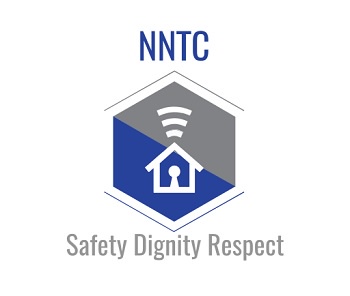In an ever-evolving work landscape, where autonomy and flexibility are prized, the concept of lone work has gained prominence. From remote field technicians to late-night security personnel, lone workers form a crucial part of various industries. However, with independence comes inherent risks. To ensure their safety and well-being, comprehensive Lone Worker Training is indispensable.
Understanding Lone Worker Training: Lone Worker Training encompasses a spectrum of skills, knowledge, and protocols designed to equip individuals with the tools needed to navigate the unique challenges of working alone. It goes beyond mere hazard identification, delving into risk mitigation strategies, effective communication methods, and emergency response procedures.
Identifying Risks: The cornerstone of Lone Worker Training lies in recognizing potential hazards. Whether it's environmental dangers, physical threats, or health risks, understanding the specific perils associated with solitary work forms the first line of defense. By conducting thorough risk assessments, organizations can tailor their training programs to address the most pertinent concerns.
Communication Protocols: Effective communication is the lifeline for lone workers. Whether it's checking in with a supervisor, requesting assistance, or signaling distress, having robust communication protocols in place is non-negotiable. Lone Worker Training emphasizes the use of various communication devices, such as smartphones, two-way radios, or dedicated lone worker safety apps, ensuring that individuals can stay connected regardless of their location.
Emergency Response Strategies: In the event of an emergency, lone workers must be prepared to act swiftly and decisively. Lone Worker Training equips individuals with the knowledge to assess emergency situations, administer first aid if necessary, and execute evacuation procedures. Moreover, it instills the importance of maintaining composure and seeking help without hesitation.
Psychological Well-being: Working alone for extended periods can take a toll on one's psychological well-being. Feelings of isolation, stress, and anxiety are not uncommon among lone workers. Therefore, Lone Worker Training includes modules that focus on mental health awareness, stress management techniques, and strategies for maintaining a healthy work-life balance.
Continuous Learning and Adaptation: The landscape of lone work is dynamic, with new challenges emerging regularly. As such, Lone Worker Training should be viewed as an ongoing process rather than a one-time event. Organizations must foster a culture of continuous learning, providing regular updates, refresher courses, and opportunities for feedback and improvement.
Understanding the Need for De-escalation Training: Lone workers often encounter challenging scenarios where conflicts may arise unexpectedly. From dealing with irate customers to navigating hazardous environments, the ability to defuse tense situations is crucial for their safety and well-being. De-escalation training equips lone workers with the skills and strategies to mitigate conflicts peacefully, minimizing the risk of escalation and harm.
Key Components of De-escalation Training: Effective de-escalation training goes beyond mere instruction; it involves experiential learning, scenario-based simulations, and role-playing exercises. Participants learn to recognize early signs of agitation, communicate effectively under pressure, and employ de-escalation techniques tailored to different contexts. Moreover, they develop the confidence and resilience needed to manage challenging situations independently, empowering them to make informed decisions in real-time.
The "De-escalation Train The Trainer" Approach: The "De-escalation Train The Trainer" model represents a paradigm shift in lone worker safety training. Instead of relying solely on external instructors, organizations cultivate internal expertise by empowering designated trainers to deliver de-escalation training to their peers. This approach fosters a culture of preparedness and accountability within the workforce, ensuring that de-escalation skills are ingrained at all levels of the organization.
Benefits of the "De-escalation Train The Trainer" Model:
Scalability: By training internal trainers, organizations can scale their de-escalation training initiatives more efficiently, reaching a larger number of lone workers across diverse locations and shifts.
Customization: Internal trainers possess firsthand knowledge of the organization's unique challenges and environments, enabling them to tailor training programs to address specific needs and scenarios.
Sustainability: Building internal capacity for de-escalation training ensures long-term sustainability, reducing reliance on external resources and facilitating ongoing skill development.
Cultural Integration: The "Train The Trainer" model fosters a culture of safety and collaboration, where employees take an active role in promoting a supportive and secure work environment for themselves and their colleagues.
Best Practices for Implementing "De-escalation Train The Trainer":
Identify and train suitable candidates with a passion for safety and strong communication skills.
Provide comprehensive training materials, resources, and ongoing support to empower trainers for success.
Foster a culture of continuous learning and feedback, encouraging trainers to refine their skills and share best practices.
Measure the impact of training through regular assessments, feedback surveys, and incident analysis, adapting programs as needed to address evolving challenges.
For More Info:-
Personal Safety Training
Lone Worker Training
De-escalation Training
Breakaway Training
De-escalation Train The Trainer
Dealing with difficult telephone calls
Bullying and Harassment Training
Cultural awareness training







No comments yet